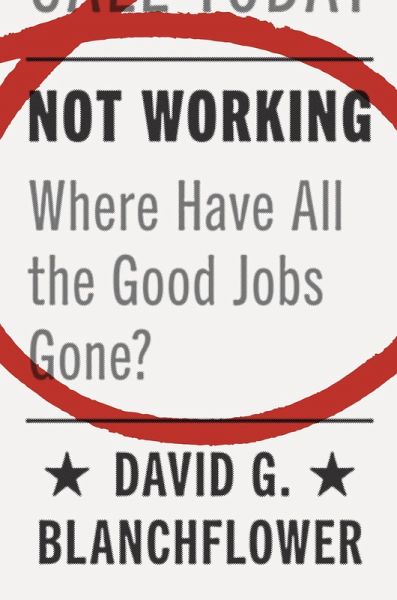
Not Working (eBook, ePUB)
Where Have All the Good Jobs Gone?
Versandkostenfrei!
Sofort per Download lieferbar
21,95 €
inkl. MwSt.
Weitere Ausgaben:

PAYBACK Punkte
11 °P sammeln!
A candid assessment of why the job market is not as healthy as we think Don't trust low unemployment numbers as proof that the labor market is doing fine-it isn't. Not Working is about those who can't find full-time work at a decent wage-the underemployed-and how their plight is contributing to widespread despair, a worsening drug epidemic, and the unchecked rise of right-wing populism. In this revelatory and outspoken book, David Blanchflower draws on his acclaimed work in the economics of labor and well-being to explain why today's postrecession economy is vastly different from what came bef...
A candid assessment of why the job market is not as healthy as we think Don't trust low unemployment numbers as proof that the labor market is doing fine-it isn't. Not Working is about those who can't find full-time work at a decent wage-the underemployed-and how their plight is contributing to widespread despair, a worsening drug epidemic, and the unchecked rise of right-wing populism. In this revelatory and outspoken book, David Blanchflower draws on his acclaimed work in the economics of labor and well-being to explain why today's postrecession economy is vastly different from what came before. He calls out our leaders and policymakers for failing to see the Great Recession coming, and for their continued failure to address one of the most unacknowledged social catastrophes of our time. Blanchflower shows how many workers are underemployed or have simply given up trying to find a well-paying job, how wage growth has not returned to prerecession levels despite rosy employment indicators, and how general prosperity has not returned since the crash of 2008. Standard economic measures are often blind to these forgotten workers, which is why Blanchflower practices the "economics of walking about"-seeing for himself how ordinary people are faring under the recovery, and taking seriously what they say and do. Not Working is his candid report on how the young and the less skilled are among the worst casualties of underemployment, how immigrants are taking the blame, and how the epidemic of unhappiness and self-destruction will continue to spread unless we deal with it.













